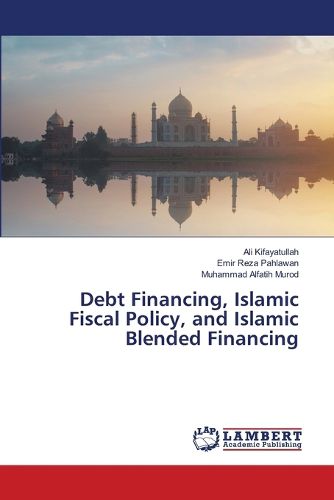Readings Newsletter
Become a Readings Member to make your shopping experience even easier.
Sign in or sign up for free!
You’re not far away from qualifying for FREE standard shipping within Australia
You’ve qualified for FREE standard shipping within Australia
The cart is loading…






This title is printed to order. This book may have been self-published. If so, we cannot guarantee the quality of the content. In the main most books will have gone through the editing process however some may not. We therefore suggest that you be aware of this before ordering this book. If in doubt check either the author or publisher’s details as we are unable to accept any returns unless they are faulty. Please contact us if you have any questions.
This book delves into the complex interplay between traditional debt financing and Islamic financial principles. In contemporary fiscal landscapes, many developing countries face challenges with debt financing, including the burden of interest and the risk of default. The book explores these issues comprehensively, analyzing how debt financing can often contradict Islamic economic principles and create socio-economic imbalances. It then pivots to present alternative solutions rooted in Islamic fiscal policy and blended finance mechanisms. Islamic fiscal policies emphasize equitable wealth distribution, zakat (charitable giving), and fiscal responsibility, while Islamic blended finance combines philanthropic funds with private investments to support sustainable development projects. By integrating theoretical analysis with practical case studies, this book provides valuable insights into how Islamic finance can offer viable, ethical alternatives to conventional debt financing. It aims to contribute to the broader discourse on sustainable development, financial inclusion, and economic justice.
$9.00 standard shipping within Australia
FREE standard shipping within Australia for orders over $100.00
Express & International shipping calculated at checkout
This title is printed to order. This book may have been self-published. If so, we cannot guarantee the quality of the content. In the main most books will have gone through the editing process however some may not. We therefore suggest that you be aware of this before ordering this book. If in doubt check either the author or publisher’s details as we are unable to accept any returns unless they are faulty. Please contact us if you have any questions.
This book delves into the complex interplay between traditional debt financing and Islamic financial principles. In contemporary fiscal landscapes, many developing countries face challenges with debt financing, including the burden of interest and the risk of default. The book explores these issues comprehensively, analyzing how debt financing can often contradict Islamic economic principles and create socio-economic imbalances. It then pivots to present alternative solutions rooted in Islamic fiscal policy and blended finance mechanisms. Islamic fiscal policies emphasize equitable wealth distribution, zakat (charitable giving), and fiscal responsibility, while Islamic blended finance combines philanthropic funds with private investments to support sustainable development projects. By integrating theoretical analysis with practical case studies, this book provides valuable insights into how Islamic finance can offer viable, ethical alternatives to conventional debt financing. It aims to contribute to the broader discourse on sustainable development, financial inclusion, and economic justice.